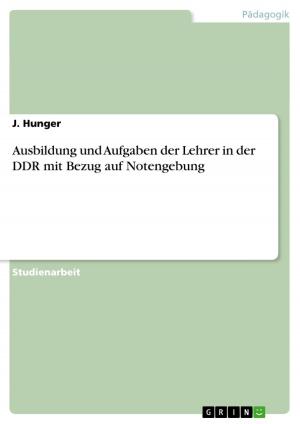| Author: | Uwe Mehlbaum | ISBN: | 9783640528899 |
| Publisher: | GRIN Verlag | Publication: | February 5, 2010 |
| Imprint: | GRIN Verlag | Language: | English |
| Author: | Uwe Mehlbaum |
| ISBN: | 9783640528899 |
| Publisher: | GRIN Verlag |
| Publication: | February 5, 2010 |
| Imprint: | GRIN Verlag |
| Language: | English |
Bachelor Thesis from the year 2008 in the subject English Language and Literature Studies - Linguistics, grade: 2,0, University of Bayreuth (Lehrstuhl für Englische Sprachwissenschaft), language: English, abstract: Discourse Marker is a term which is relatively hard to define. A simplified way is to say that it refers to words or phrases which are usually used to structure sequences of a speech or a written text. Examples of Discourse Markers include expressions like actually, you know, well or OK. Discourse Markers are lexemes which could often simply be left out, without changing the semantic function of a sentence, because they usually don't contribute to the sentence's truth-condition or the propositional content. However, they often have other important functions. Apart from being used in order to organise and structure a speech, they often indicate some aspects of attitude (Renkema 2004:169) and the relation between different utterances. Discourse Markers appear very frequently in speeches (usually every few seconds); in written texts they are very frequent as well, though usually not as frequent as in verbal speech. Discourse Markers can also give information about social dimensions, group identity and relations between communicating people (Aijmer 2002:14). Although this definition is by far not entirely comprehensive, it should serve for the moment in order to clarify the subject of this paper. This paper is going to explain the term Discourse Markers in some detail and then analyse the use of Discourse Markers by speakers of non native English, namely members of University Parliamentary Debating competitions (a close definition will follow in chapter 2), who are from the countries Germany, the Netherlands, Czech Republic, Turkey and Malaysia. It will be analysed and explored how often Discourse Markers occur in the speeches of different speakers and what exactly the different Discourse Markers are used for.
Bachelor Thesis from the year 2008 in the subject English Language and Literature Studies - Linguistics, grade: 2,0, University of Bayreuth (Lehrstuhl für Englische Sprachwissenschaft), language: English, abstract: Discourse Marker is a term which is relatively hard to define. A simplified way is to say that it refers to words or phrases which are usually used to structure sequences of a speech or a written text. Examples of Discourse Markers include expressions like actually, you know, well or OK. Discourse Markers are lexemes which could often simply be left out, without changing the semantic function of a sentence, because they usually don't contribute to the sentence's truth-condition or the propositional content. However, they often have other important functions. Apart from being used in order to organise and structure a speech, they often indicate some aspects of attitude (Renkema 2004:169) and the relation between different utterances. Discourse Markers appear very frequently in speeches (usually every few seconds); in written texts they are very frequent as well, though usually not as frequent as in verbal speech. Discourse Markers can also give information about social dimensions, group identity and relations between communicating people (Aijmer 2002:14). Although this definition is by far not entirely comprehensive, it should serve for the moment in order to clarify the subject of this paper. This paper is going to explain the term Discourse Markers in some detail and then analyse the use of Discourse Markers by speakers of non native English, namely members of University Parliamentary Debating competitions (a close definition will follow in chapter 2), who are from the countries Germany, the Netherlands, Czech Republic, Turkey and Malaysia. It will be analysed and explored how often Discourse Markers occur in the speeches of different speakers and what exactly the different Discourse Markers are used for.















